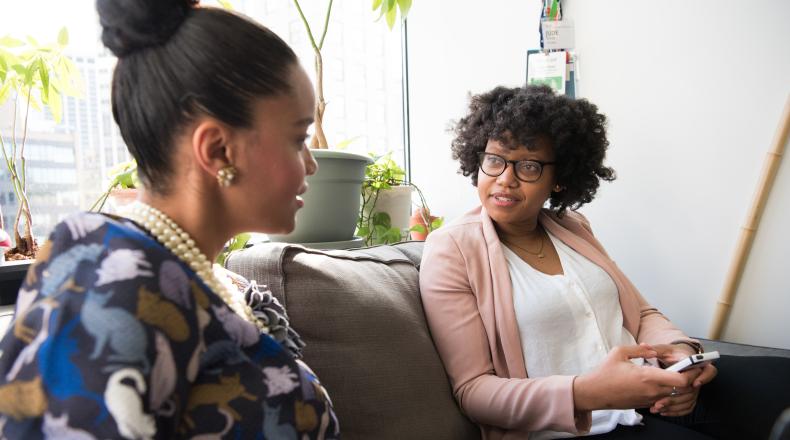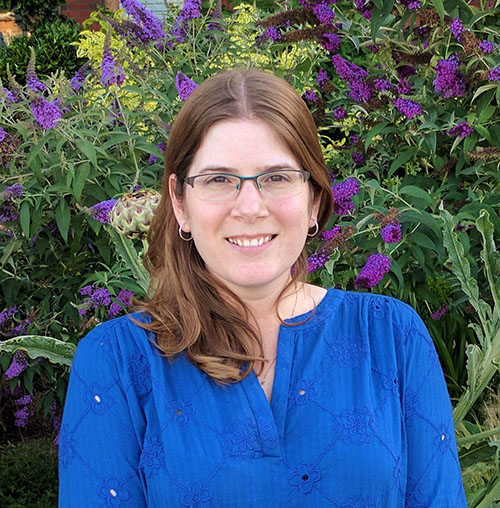Dear Colleagues: Learn More, Consider Others, Embrace Change

I’m going to admit that I had a hard time last summer when I heard the news that my peers have been trying to communicate: Our beloved fundraising best practices are harmful to, and exclusive of, communities of color. I’ve been working in this field more than 15 years, spending countless hours learning and becoming these best practices. They are part of who I am. They also impact the good I can do for my organization and for our cause. I earned my CFRE, participated on both sides of local mentorship programs, and taught fundraising workshops – all because I want to contribute to advancing this profession.
That’s part of being engaged with AFP, right? To not just learn but seek to do better for our wonderful work in philanthropy and nonprofit movements. I felt crushed when I learned that our profession is not living up to its full potential, and that we are not even close!
To My Fellow White Fundraisers …
I was leading a small team of passionate fundraisers through a difficult moment, focusing on our long-held ideas of what made good fundraising for our organization. In the midst of trying to keep up with how to fundraise during a pandemic, I stumbled into several programs discussing the inherent racism in philanthropy and fundraising. And I didn’t want to believe it, I didn’t have time for it. I pushed back viscerally. I turned to my long-time reliable fundraising gurus for guidance, and they weren’t saying anything about it, so I felt justified. Naively, I wanted proof that we needed new best practices. And I stayed the course with my team.
I separated my experience and my organization’s approach from what others were calling out. I was defensive. Because our organization does not focus on social service, I believed we could not possibly suffer from the widely claimed savior issue. Being an environmental organization, we honored our donors as “heroes” of the land, which is different from “heroes” of people or communities, right? (No, it is not, and I was very wrong.)
I pushed back in every way but one – I kept listening. I sought out the voices of Black, Indigenous and People of Color (BIPOC) fundraisers. I tuned in to the town halls, signed onto blogs, read books and started journaling. I found a safe group of friends to dive into the work of learning more about what white supremacy and systemic racism look like, and where those factors show up in my happy nonprofit world. It took time for me to actually hear what was being said by colleagues of color, internalize it and rethink how I was going to move forward even if we didn’t have any tools yet on how to advance philanthropy in a more inclusive direction. The thing was that we never intended to be exclusive, but we weren’t being intentionally inclusive in the ways we needed to be. However, intentions don’t change the world. Actions do. And now I’m making changes.
I’m writing to encourage you to keep listening to what is coming out. Listen until you hear, and can begin to reform what philanthropy – what love of humankind – means to you. Because now it feels good to know that I am more aware and can start to better my fundraising approaches, and in turn be part of building a more inclusive, meaningful and effective profession.
To Fundraising Researchers …
You have been my guiding lights for over 15 years. Now I must ask you to please stop trying to homogenize philanthropy. Your research that distills what donors need from nonprofits into colorblind personas paints the wrong picture. I learned long ago, from Black, Asian, South Asian, and Hispanic philanthropists speaking on local AFP panels, that each of these communities have their own form of philanthropy and are not interested in “white” issues. I admit I couldn’t find the bridge, and that I gave up. If I did involve young BIPOC donors, I felt good about my efforts to introduce them to the joy of philanthropy. I was naïve. These communities have such a rich and deeply embedded culture of philanthropy to which white people should aspire. Not the other way around.
Part of my pushing back last summer came from a desire to see research that explains why many communities of color do not respond to philanthropy’s best practices, and to see research about what these individuals and groups do respond to. Now that I am beginning to see the bigger picture of why our fundraising does not work as well as it could, I realize there is so much to learn, and I need your help.
In your ongoing research, in addition to including more voices of color, please break out those voices into their cultural groups so that those of us on the front lines can better meet donors where they are, not where we think they are. That will help me more effectively get to know the dynamic and unique individuals within different groups.
To Board Members of Color …
At past organizations where I’ve served, I’ve seen men and women of color join our Board full of vision and promise. Then I see their enthusiasm quickly wane and they become ghost members. It feels frustrating, as a staff member, to lose that valuable resource, and I never understood why it was happening. I believe that your investment in joining the Board is real, but somewhere between the cultivation and the actual experience of Board service something changes. Something is lost. I believe that our white, corporate culture approach to nonprofit Boards may not offer you the opportunities to make the impact you desire, the impact you are capable of that was the reason you were invited in the first place.
We need to talk to each other about this problem. Let’s engage as fellow Board members and staff partners to better envision your goals and how you want to be involved. Let’s talk frankly about what holds you back or shuts down your enthusiasm. We want you on our Boards and throughout our organizations—not as a token but because you can help broaden our perspective, open our eyes to ideas we’ll never have, improve our ability to meet the real needs of those we serve, and so much more.
To All My Nonprofit Colleagues, Caring Donors and Passionate Volunteers …
As your trusted philanthropic adviser, I am on this journey with you. Your intentions are good, and we are in this together. I am committed to doing my part, even while I am still learning. And I pledge to speak up to you and for you every time I see white supremacist tendencies threatening the good we do.
You need more than my voice. Many brave people of color are speaking out, and they need us to hear them. There are panel discussions recorded anywhere you look online, including on the AFP website, featuring BIPOC voices. Community-Centric Fundraising in Seattle is promoting blogs written by nonprofit professionals from all cultural and identity backgrounds. Books and audiobooks are available, such as Collecting Courage that features narratives from frontline fundraisers of color, and Decolonizing Wealth that talks directly to funders but has important information for everyone in the field of philanthropy.
I encourage you to dive in. Yes, it can be painful at first. Yes, we will make mistakes and learn from them. Truthfully, I now find it so empowering to know that I am more aware and can start to make the changes needed to help build an even better future for all of us.


 Shannon N. Foucault, MBA, CFRE, discovered the profession in 2005 after a summer internship at a municipal art gallery revealed that there are people with funding resources and people with brilliant ideas to do good, and they do not speak the same language. She has been working as an ardent translator and connector ever since, helping donors engage meaningfully in public art and environmental conservation causes.
Shannon N. Foucault, MBA, CFRE, discovered the profession in 2005 after a summer internship at a municipal art gallery revealed that there are people with funding resources and people with brilliant ideas to do good, and they do not speak the same language. She has been working as an ardent translator and connector ever since, helping donors engage meaningfully in public art and environmental conservation causes.
